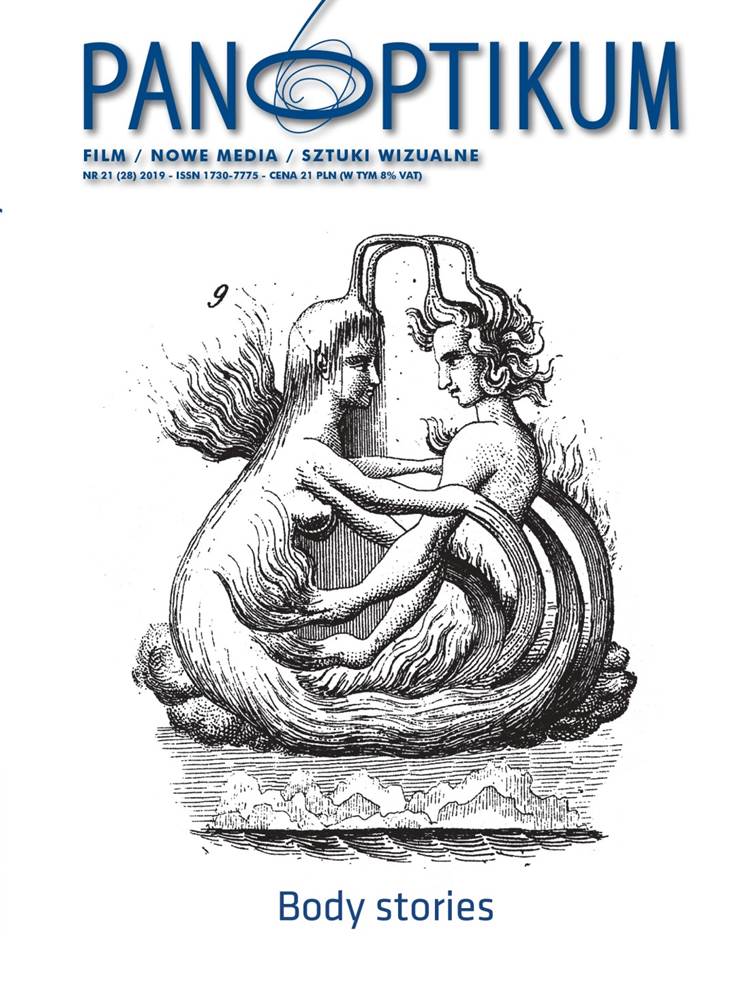The interactive context of discovering the category of corporeality in a phenomenological approach
DOI:
https://doi.org/10.26881/pan.2019.21.04Keywords:
body, corporeality, carnal self, embodied presence, care, gratitude, mindfulness, ethics of touch, therapeutic relation in physiotherapyAbstract
The article presents different ways of dealing with the subject of the body and corporeality in the humanities, which can form the epistemiological and axiological basis in a reflection on the psycho- and physiotherapeutic relationship with patients, and confronts them with the results of two qualitative studies based on the grounded theory concerning exploration by women of their own body and experiencing their own corporeality, intimacy and touch in medical relations. The author shows that phenomenological philosophy, taking into account the concepts of “carnal self” and “presence of the embodied” that human knowledge always has a carnal character, is the most adequate for use in analyses regarding therapeutic interactions related to the body. Analysis of qualitative research on the process of realising your own corporeality in the cognitive-emotional dimension in the relationship with oneself and in the therapeutic relationship fully confirms the legitimacy of applying the grounded theory method in the study of phenomena regarding carnality and such values as gratitude, mindfulness, care, efficiency and autonomy emerge.
Downloads
References
Adamiak, M. (2012), Feminizm a fenomenologia – w kontekście poszukiwania albo konstruowania kobiecej tożsamości, Etyka, nr 45, pp. 62-72, http://bazhum.muzhp. pl/media//files/Etyka/Etyka-r2012-t45/Etyka-r2012-t45-s62-72/Etyka-r2012-t45-s62-72.pdf, (accessed: 10.05.2019).
Bach, T. (2012), Gender Is a Natural Kind with a Historical Essence, Ethics, vol. 122, no.2, The University of Chicago Press.
Byczkowska, D. (2012), Cielesność, [w:] K. T. Konecki, P. Chomczyński, Słownik socjologii jakościowej, Warszawa: Difin SA, pp. 45-49.
Chirpaz, F. (1998), Ciało, (trans. J. Migasiński). Warszawa: IFiS PAN.
Charmaz, K. (2017). Teoria ugruntowana. Praktyczny przewodnik po analizie jakościowej, Warszawa: Wydawnictwo Naukowe PWN.
Thomas J. Csordas, T.J. (2009), The Somatic Modes of Attention, Cultural Anthro- pology vol. 8, no. 2.
Descartes, R. (2001), Medytacje o pierwszej filozofii. Zarzuty uczonych mężów i zar- zuty autora. Rozmowa z Burmanem, (trans. M. i K. Ajdukiewiczowie, S. Swieżawski, I. Dąmbska), Kęty: Wydawnictwo Antyk.
Damasio, A. R. (2000), Tajemnica świadomości. Jak ciało i emocje współtworzą świadomość, Poznań: Rebis.
Długołęcka, A., Pieńko, T. (2018), Wdzięczność, Warszawa/Lublin: Fundacja She/Akapit.
Dominiak, Ł. (2007), Problematyka seksualności w filozofii politycznej Michela Foucaulta. Dialogi polityczne, nr 8. https://apcz.umk.pl/czasopisma index.php/DP/article/viewFile/6513/5887, (accessed: 20.06.2019).
Foucault, M. (2000), Seksualność i władza, [w:] tenże, Filozofia, historia, polityka. Wybór pism (tłum. D. Leszczyński). Warszawa-Wrocław: Wydawnictwo Naukowe PWN.
Heidegger, M. (2000), Co zwie się myśleniem? (trans. J. Mizera). Warszawa: PWN.
Husserl, E. (1975), Idee czystej fenomenologii i fenomenologicznej filozofii. Księga pierwsza, ( przeł. D. Gierulanka). Warszawa: PWN.
Judycki, S. Fenomenologia jako filozofia kategorialna i transcendentalna. https://www. academia.edu/22259881/Filozofia_i_fenomenologia, (accessed: 20.11.2019).
Kepner, J. I. (1991), Ciało w procesie psychoterapii, Warszawa: Wydawnictwo Pusty Obłok.
Khan, S. (2014), Qualitative Research Method: Grounded theory, International Journal of Business and Management; Vol. 9, No. 11. https://www.researchgate.net/pub- lication/287400872_Qualitative_Research_Method_Grounded_Theory, (accessed: 21.06.2019) Qualitative Research Method: Grounded Theory.
Kolasa, D. (2010), Sytuacje możliwe a sytuacje graniczne w filozofii Jaspersa, Studia z historii filozofii, nr 1. https://apcz.umk.pl/czasopisma/index.php/szhf/article/view/ szhf.2010.009/114, (accessed: 22.06.2019).
Lakoff, G. (2003), How the Body Shapes Thought: Thinking with an All Too Human Brain.[ In:] A. Sanford & P. Johnson-Laird (Eds.), The Nature and Limits of Human Understanding, Edinburgh: T & T Lark Publishers, Ltd.
Lemma, A. (2014), Pod skórą. Psychoanalityczne studium modyfikacji ciała, Gdańsk: Imago.
Marczyński, A. (2016), Ciało/Mistyka. Wstęp do ontologii cielesności, Kraków: Wydawnictwo Benedyktynów.
Merleau-Ponty, M. (2001), Fenomenologia percepcji, (trans. M. Kowalska, J. Migasiński). Warszawa: Fundacja „Aletheia”.
Mirucka, B. (2003), Poszukiwanie znaczenia cielesności i ja cielesnego, Przegląd psy- chologiczny, vol. 46, no. 2.
Murawska, M. (2008), Tajemnica żywej cielesności: fenomenologia ciała w ujęciu Maurice’a Merleau-Ponty’ego i Michela Henry’ego, Sztuka i Filozofia , vol. 33.
Sartre, J.P. (2007), Byt i nicość. Zarys ontologii fenom enologicznej, (trans. J. Kiełbasa, P. Mróz, R. Abramciów, R. Ryziński, P. Matochleb,). Kraków: Zielona Sowa.
Święcicka, K. (1993), Husserl, Warszawa: Wiedza Powszechna.
Wilkis, A. (2015), Thinking the Body. Durkheim, Mauss, Bourdieu: The Agreements and Disagreements of a Tradition, https://www.researchgate.net/publication/301801202_ Thinking_the_Body_Durkheim_Mauss_and_Bourdieu, (accessed: 18.06.2019).

 Academic Scientific Journals
Academic Scientific Journals









